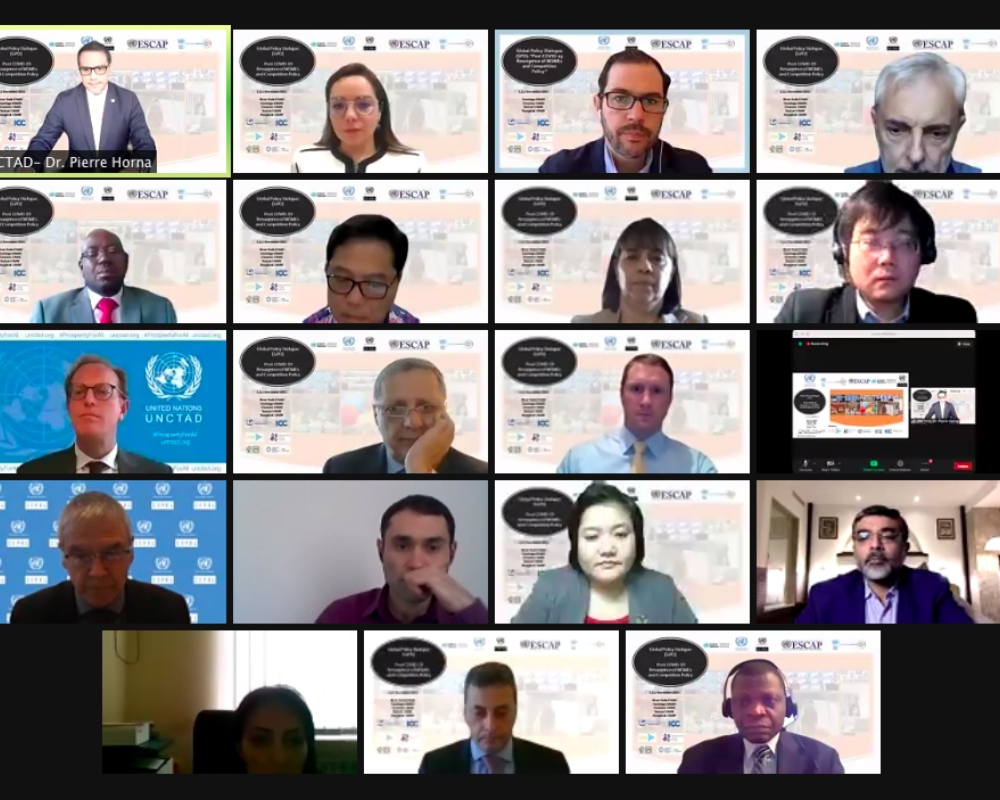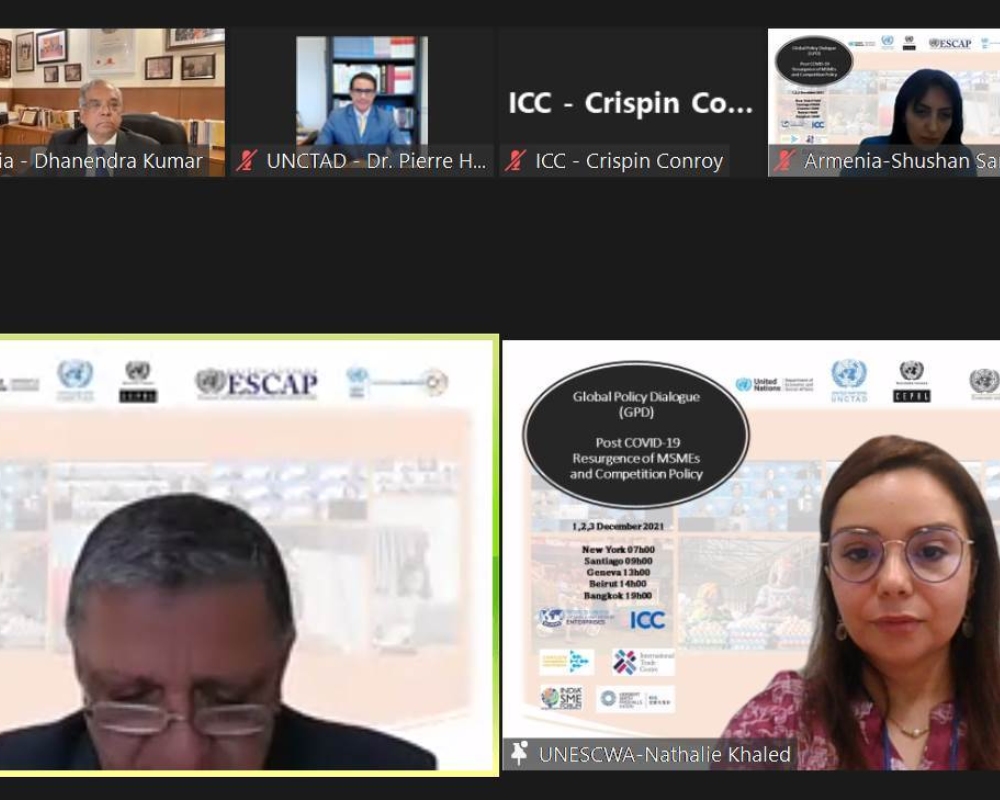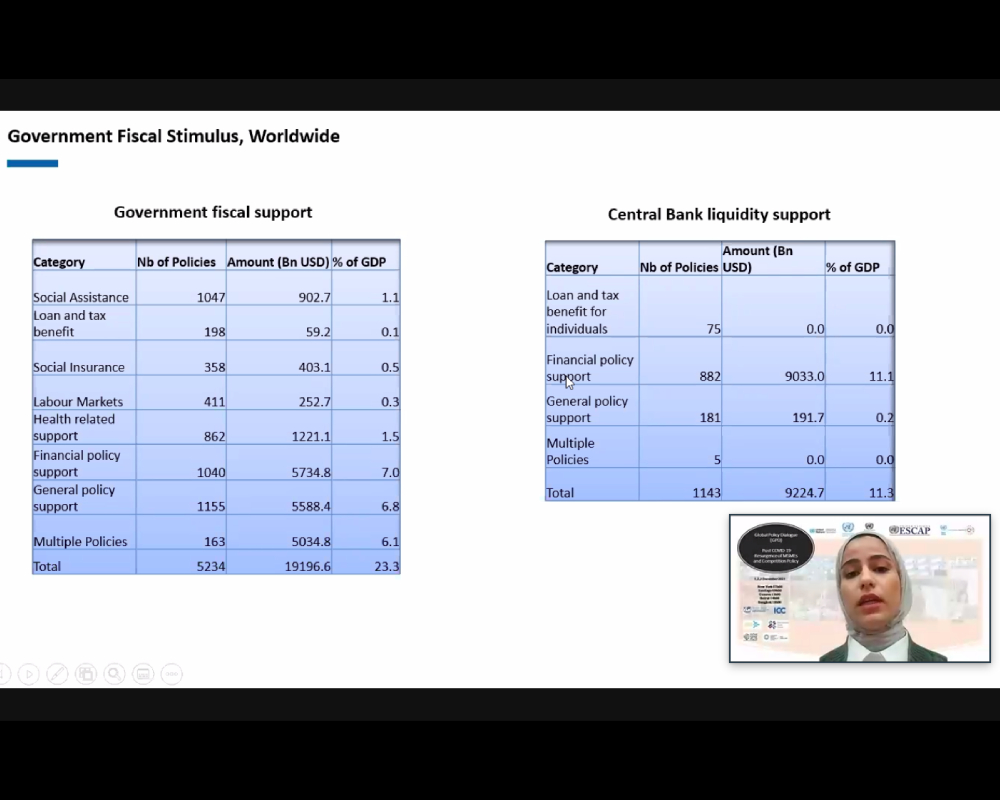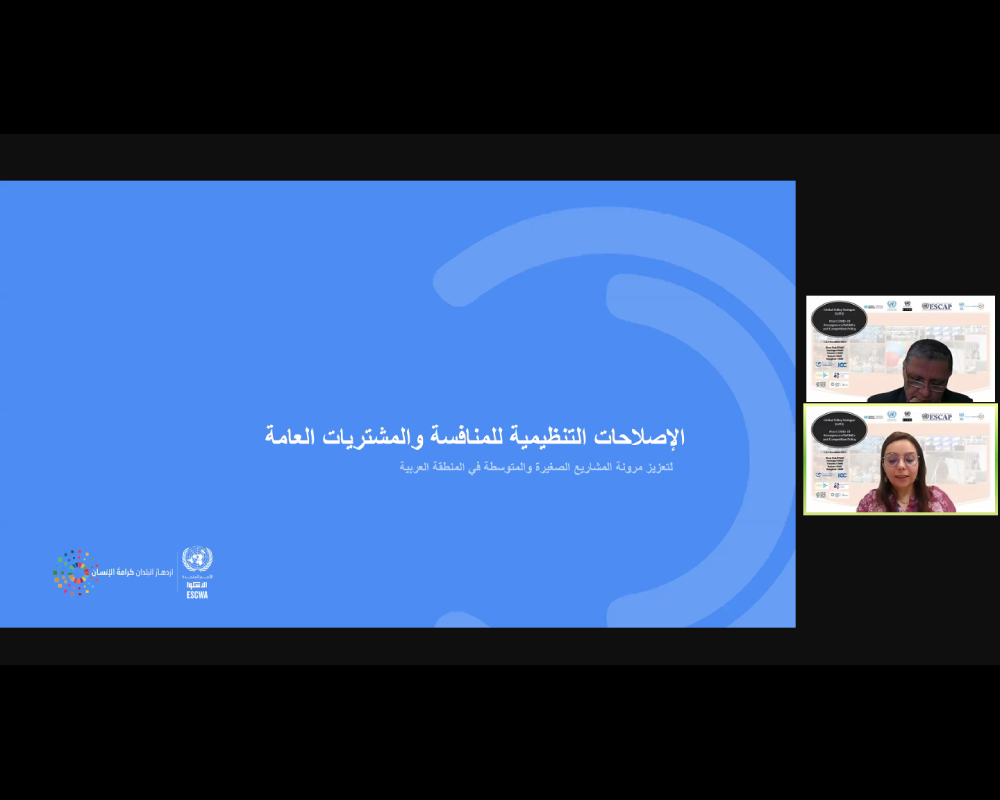The United Nations Conference on Trade and Development, in close partnership with ESCWA and other regional commissions, the Department of Economic and Social Affairs, the Economic and Social Commission for Asia and the Pacific, and the Economic Commission for Latin America and the Caribbean, is hosting a global policy dialogue on micro, small and medium enterprises (MSMEs)
The dialogue is an interactive discussion between representatives and officials of government MSME bodies, competition agency representatives, and scholars from various parts of the world, providing the opportunity to gain insight and share knowledge and experiences that will shape competition policies supporting the resurgence and growth of MSMEs.
Discussions cover:
- The impact of competition policy on the digitalization of MSMEs in the wake of COVID-19;
- Access to finance and government support in times of COVID-19;
- Interagency coordination between MSME agencies and competition authorities.



